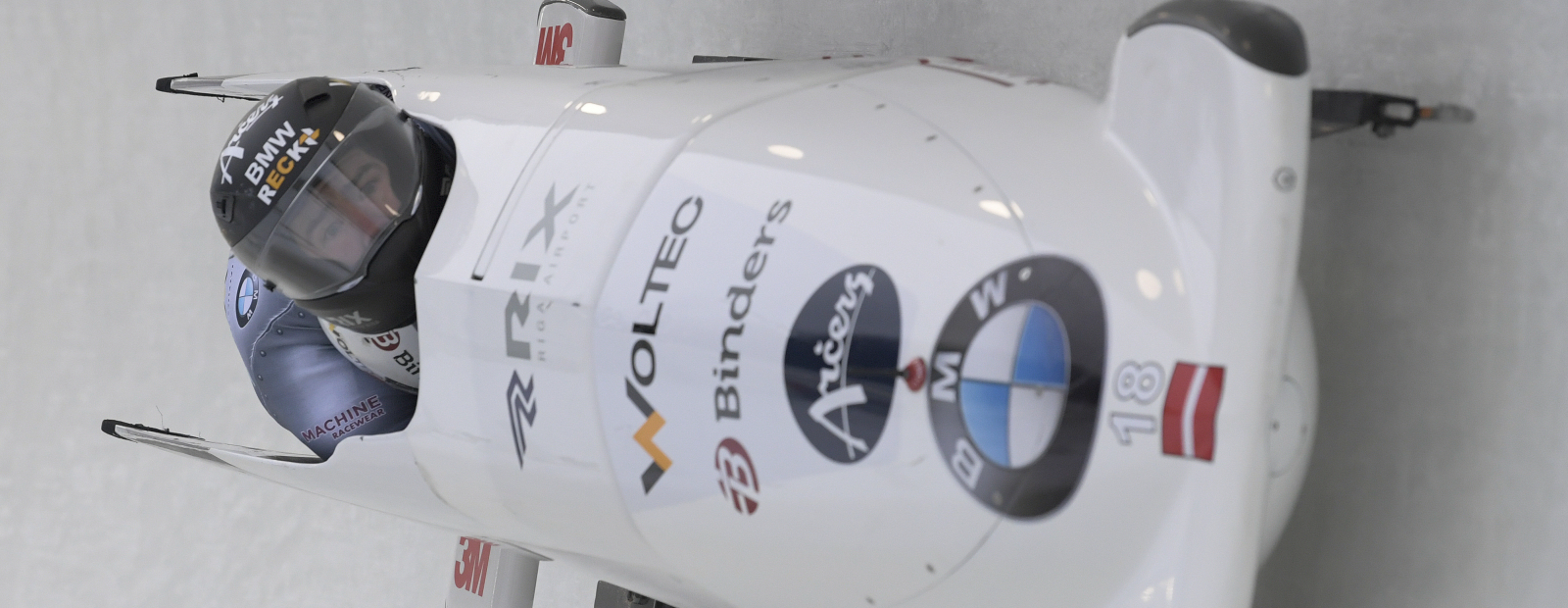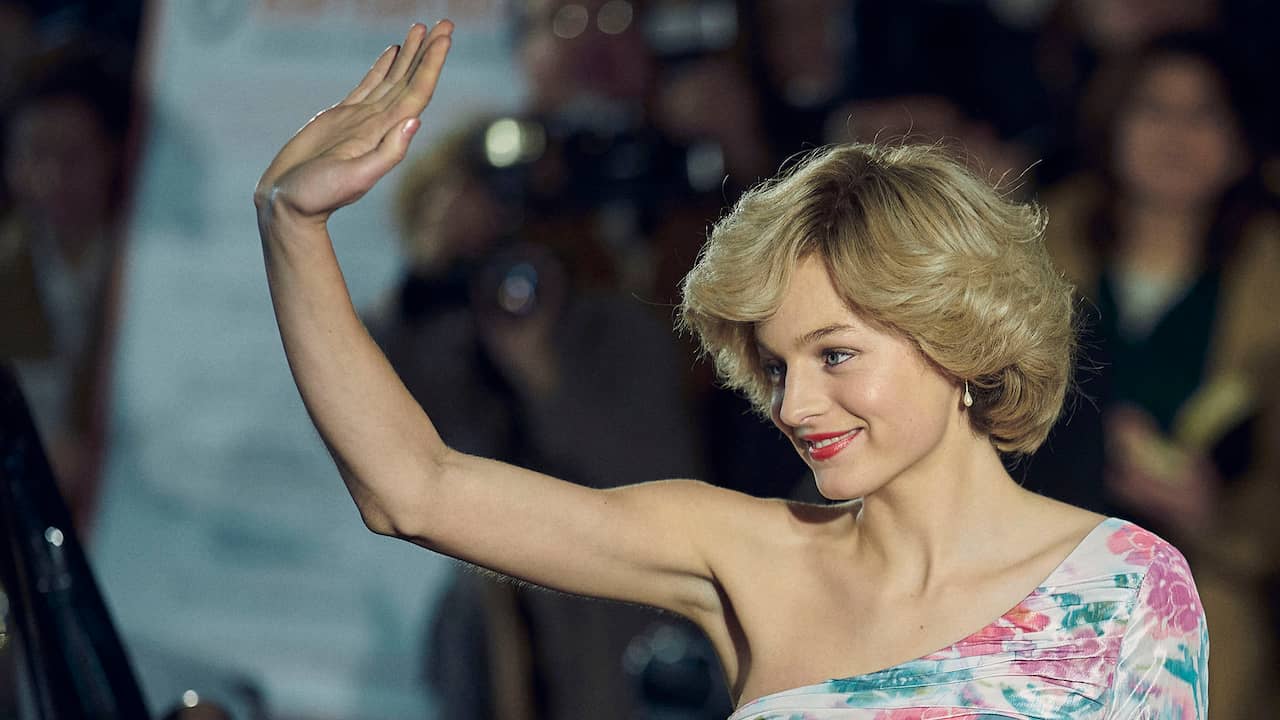The fastest in the second race was the German Francesco Friedrich and the pusher Torsten Margis. They were the fastest both at the start and on the track, celebrating the victory in the sum of two races. In the first race, this crew took the second position.
The second place was won by Johannes Lohners, who had not ridden in Sigulda before and set a new track record in the first approach. The German crew reached the second fastest time at the start and also crossed the finish line in this position. He lost 0.04 seconds to his compatriot.
Next to the bronze was the crew of Simon Simon Friedl, who showed the third fastest time in the second race, but in the first place in the fourth position.
Of the Latvian crews, the highest result was shown by the Bērziņš / Bebriša two, who showed the seventh fastest time at the start and finished in the seventh position. In the sum of two races, Latvians lost 0.53 seconds to the leader and won the fifth place.
The position was lower than the crew of Oskars Ķibermanis, who started the second race with a small miss at the start, but managed to make the track relatively “clean”. The third time is shown at the start, but the fifth position in the race. In the sum of two trips, the Ķibermanis crew ranked sixth.
Meanwhile, Dāvis Kaufmanis / Ivo Dan Kleinbergs were the fourth fastest at the start, but ranked 12th, which allowed them to take the tenth place in the sum of two races. This crew lost 0.71 seconds to the Germans.
In the first race, the fastest time was shown by the German Lohner crew, which was the fastest start and later also set a new track record – 49.51 seconds.
The Kaufmann / Kleinberg crew went second on the track and pushed the sledge well (fourth fastest start time), after that also without making big mistakes on the track. The crew was the fastest for a while, but later Simons Friedlis took the lead, 0.03 seconds ahead of the Latvian. After the first race, Kaufmanis / Kleinbergs took the sixth position, with the leader losing 0.21 seconds in his debut.
Oskars Ķibermanis’ crew showed the third best time at the start, but in the middle part of the track there were some mistakes that resulted in a loss of speed and ninth position. Kiberman’s two Germans lose 0.37 seconds.
Bērziņš / Bebrišs finished the place higher, having the eighth fastest time at the start and also at the finish, with the leader losing 0.29 seconds.
The air temperature in Sigulda according to Celsius is +3 to +4 degrees, and the results presented by the athletes show that on Saturday the track was fast.
13 crews of two participated in the first stage.
For Kiberman, the German bobsleigh virtuoso Francesco Friedrich, who starts with Torsten Margis, compiled the battle for victory in the competition. Among the favorites was another German Johannes Lohner.
Bobsleigh players from the USA, Canada and Great Britain, as well as Russian and Austrian crews will not take part in the stages, because Covid-19 was found in some athletes of these countries upon arrival in Latvia.
Last season, Ķibermanis won in both stages of Sigulda. In the first stage, Friedrich created a fierce competition for him, but in the next stage, the German did not start, winning the second place for the Swiss Simon Friedl. Last year, when Sigulda debuted in the World Cup, Friedrich was unbeaten in both stages.
In the 2019/2020 season, Ķibermanis won the second place in the overall standings, conceding only to Friedrich, but Bērziņš did not start in two stages and ranked 14th. In the quadruple for Latvians, the fourth and 17th position, respectively, but in the combination – the third and 15th place. Ķibermanis became the European champion and won bronze in the planetary championship, but Bērziņš had a place in the second tenth in these matches.
Meanwhile, Kaufman is a World Cup debutant. Last season, he was crowned European Champion in the U-23 age group.
As the head coach of the Latvian bobsleigh team Sandis Prūsis revealed in a conversation with the news agency LETA this week, a total of five Latvian pilots will start in the Sigulda stages.
It is planned that the twins piloted by Oskars Ķibermanis and Ralph Bērziņš will take part in all four stages. In the first weekend, Dāvis Kaufmanis will be the pilot of the third doubles in one match, and Emīls Cipulis in the second.
The debut of Olympic champion Oskars Melbārzs is planned for the second weekend together with Ķibermanis and Bērziņš on both days of the competition.
The second competition of the World Bobsleigh Cup will take place on Sunday.
Since 2006, the International Federation of Bobsleigh and Skeletons (IBSF) has been organizing the World Cup stages together, dividing five sets of medals in one stage – a skeleton for ladies and gentlemen, a bobsleigh for men in doubles and fours, and a bobsleigh for two.
However, the Sigulda track is currently not suitable for bobsleigh quad competitions, therefore two men’s doubles competitions are taking place in Latvia in one stage.
Next weekend, the second stage of the World Cup in skeleton and bobsleigh for two will take place in Sigulda.
The next two stages will take place in Innsbruck, but one stage is planned in Winterberg after the new year. The stages will continue in St. Moritz and Königssee, but the end of the season is planned for mid-March on the Yanchin track, where the 2022 Beijing Olympics will take place. However, the progress of this stage is still under question.
–


